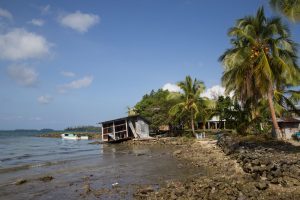The Voice offers new way forward to end Australia’s appallingly high incarceration rates
Australia has higher incarceration rates for Indigenous men than is the case in the USA for either Black Americans or Native Americans.
The Black Lives Matter movement in the United States drew attention to the high imprisonment rate of black Americans: 1 in every 55 black American men is imprisoned. However, the rate of over-imprisonment is much worse in Australia for Aboriginal and Torres Strait Islander people. One in every 22 Indigenous Australian men is in prison. In other words, for every 100 Indigenous men between 4 and 5 are in prison. That’s around two and a half times higher than the imprisonment rate for black American males.
The over-incarceration of Indigenous Australians means an Indigenous man is seventeen times more likely to be in an Australian prison than a non-Indigenous man (one out of 370 of whom are imprisoned). In March 2023 12,502 Indigenous men were in prison out of a total male prison population of 41,833. In other words, 33% of male prisoners are Indigenous (even though only 3% of Australia’s population is Indigenous).
Imprisonment rates for Indigenous women are much lower (one in 220 Indigenous women are imprisoned), but the over-imprisonment difference between Indigenous women and non-Indigenous women is more extreme than between Indigenous men and non-Indigenous men: Indigenous women are 25 times more likely to be in prison than non-Indigenous women.
The US imprisonment rate for male Native Americans, while high, is lower than that of black American men in the US and much lower than Indigenous Australian men.
It costs $120,000 a year to keep a prisoner in jail. About 14,000 Indigenous men and women are in prison. Cutting that in half would save $820 million a year in imprisonment costs. It would also reduce the cost of policing, courts, hospitals, and injury.
Reducing imprisonment rates also reduces substantial intangible costs. Incarceration often means exposure to hardened criminals, increased recidivism and reduced employment prospects. Reducing imprisonment also helps keep families and communities intact.
Spending relating to Indigenous Australians should be more effective, and everyone from the Productivity Commission to Indigenous organisations thinks the way to make that happen is to involve Indigenous people. As the Productivity Commission has repeatedly stated, governments too often treat consultation with Indigenous people as a box-ticking exercise, but the Voice offers a new way forward: “The proposed Voice would be a permanent body to make representations to the Australian Parliament and the executive government on legislation and policy of significance to Aboriginal and Torres Strait Islander peoples. In undertaking these functions, a Voice could contribute to accountability and oversight of matters affecting Aboriginal and Torres Strait Islander people.”
The Voice offers Indigenous people the chance to directly advise the Government and Parliament on what would make a difference to their lives, including Australia’s appallingly high incarceration rates. It would also give Indigenous people a chance to hold the government to account for things that are not working.
Between the Lines Newsletter
The biggest stories and the best analysis from the team at the Australia Institute, delivered to your inbox every fortnight.
You might also like
Our crisis of integrity looms in the Pacific
“An Albanese Labor government will restore Australia’s climate leadership, and listen and act on Pacific island warnings of the existential threat of climate change.” Despite a clear election campaign commitment to listen to Pacific Island nations and act on climate change, the Australian government continues to enable and encourage new and expanded fossil fuel projects. When it
Unfinished Business: Towards a settlement on Aboriginal land rights in the ACT
The Australia Institute has today published a discussion paper on the barriers to progress on Aboriginal land rights in the ACT. The paper explores the issues that need to be resolved before the ACT Government can make progress on treaty discussions. Key Findings: The transfer of the land of the ACT from NSW to the
What is the PRRT?
Gas extraction is often lauded by the industry as the ‘backbone of the Australian economy’, but the actual revenue collected from one of the main taxes on the industry falls staggeringly short of what most people would expect. Find out why this is the case – and what we can do to fix it.


